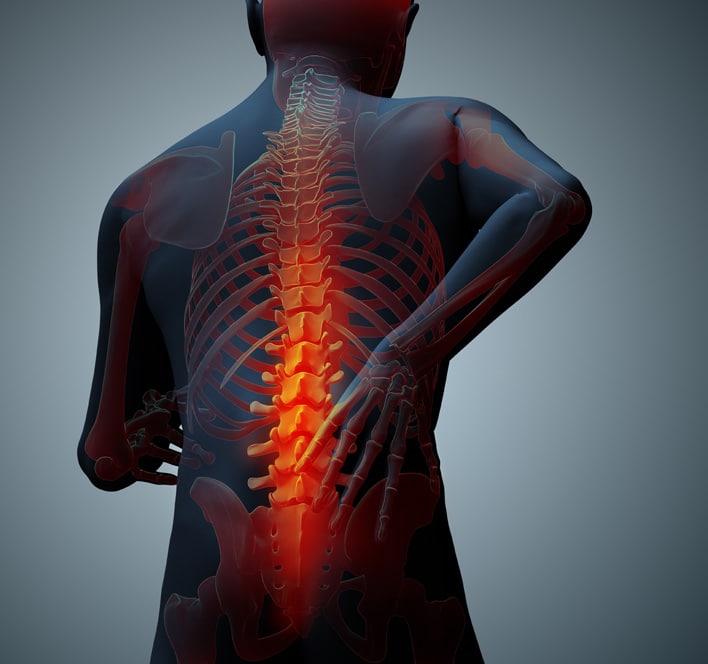Spinal stenosis occurs when you have a narrowing of the space around your spinal cord. When this occurs, it aggravates not just your spinal cord, but the nerves that stem off of it as well. Spinal stenosis can cause an array of symptoms, such as neck or back pain and tingling in your legs and arms. There are a number of causes of this condition as well as various treatments.
With the improvement of medical technology, however, there are many spinal stenosis treatment options. If you’re struggling with spinal stenosis symptoms, it’s best to speak with an experienced spinal surgeon at NJ Spine & Orthopedic as soon as possible.
Non-Surgical Spinal Stenosis Treatment Options
Our team may suggest a number of treatment options depending on the severity and degree of the condition you have. For example, severe stenosis may require a surgical procedure if the severity of the stenosis is causing damage to your spinal cord or to the nerves in your lower spine. However, more conservative treatments are often utilized first, such as:
1. Epidural Steroid Injections
The goal of an epidural steroid injection is to decrease inflammation of the spinal cord and/or nerve root. While the epidural steroid injection typically only provides temporary pain relief, it could offer you the opportunity to continue your physical therapy program with exercises and stretches.
2. Medications
Some of the common medications used to ease the pain of spinal stenosis include:
- Nonsteroidal anti-inflammatory drugs (NSAIDs): These help to decrease pain and inflammation. Some types of NSAIDs are ibuprofen, aspirin, and naproxen. They’re available OTC or with a prescription.
- Acetaminophen (Tylenol): This medication works through your central nervous system to ease pain.
Some doctors may also prescribe nerve-desensitizing medications like gabapentin and muscle relaxers.
3. Facet Nerve Blocks
On each side of your mid-spine, you have facet joints. A facet nerve block is a treatment where the doctor inserts a needle into your facet joint. They’ll administer the facet nerve block through the use of imaging guidance to inject a steroid and local anesthetic.
Depending on your symptoms, the spine specialist may administer the facet nerve block at one or a few levels on either side of your spine. The block is frequently used by doctors as a diagnostic test to figure out where the exact source of your spinal pain is coming from.
Surgery for Spinal Stenosis
Prior to turning to spinal surgery, spine surgeons usually recommend several weeks to several months of different non-surgical treatment options. Fortunately, spinal stenosis surgery is effective with around 80% to 90% of individuals reporting pain relief after surgery. Some common spinal stenosis surgery options include:
- Laminectomy: Lumbar laminectomy, which is sometimes called open decompression, is a type of stenosis surgery that can help narrow the spinal canal.
- Laminotomy: Instead of the surgeon removing all of the lamina, in this procedure, they remove only a portion of it, frequently by making a small hole that’s big enough to ease compression and tension in a specific part of the individual’s spine.
- Laminoplasty: Cervical laminoplasty is a decompression spinal surgery that helps ease spinal nerve and spinal cord pressure that’s due to stenosis. Rather than removing the lamina, the surgeon makes a hinge on one side of the lamina, which creates more space and relieves spinal cord pressure buildup.
The best spinal stenosis treatment varies from one individual to the next. In some cases, spinal stenosis doesn’t require surgery and the symptoms you experience go away on their own. But, individuals who have more advanced spinal stenosis require medical attention immediately.
Call the Spine Specialists at NJ Spine & Orthopedic Today to Schedule a Consultation
Spinal stenosis doesn’t have to run your life. Surgery isn’t the only treatment option for this condition, and there may be other non-surgical treatment options available to treat your stenosis, based on the severity and associated symptoms.
NJ Spine & Orthopedic is dedicated to providing all our patients with the care and medical treatment they deserve. If you’re struggling with spinal stenosis symptoms contact one of our experienced spinal surgeons for a consultation. Call us today at (866) 553-0612 or fill out our online form to schedule an appointment.

